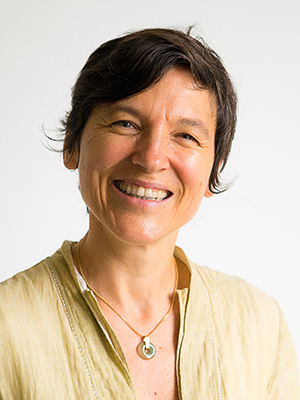Selected Publications
- Seul le juste connaît la justice. Connaissance et vérité chez Maître Eckhart, Vrin, Paris, 2006 (Études de philosophie médiévale 91)
- Métaphysique et connaissance testimoniale. Une lecture figurale du Super Iohannem (Jn 1, 7) d’Albert le Grand, Peeters, Leuven (Eckhart : Texts and Studies 11) (sub prelo)
- Albertus Magnus, Super Iohannem (Ioh. 1, 1-18), Peeters, Leuven (Eckhart : Texts and Studies 10) (sub prelo)
- Maître Eckhart, Cerf, Paris, 2012 (Les Cahiers d’Histoire de la Philosophie)
- Au-delà du sujet, l’impersonnel?, Archives de Philosophie, Cahier n. 76/3, Fall 2013
- Le Témoin dans la tradition johannique, Revue de sciences philosophiques et théologiques 101(2017/1)
- Verbe et chair: le sens de l’union dans la réception philosophique de l’Évangile de Jean (Jn 1, 12-14), LIT Verlag, Münster, Berlin, Wien, Zürich et London (Théologie biblique 1) (sub prelo).
FRIAS Project
Dynamische Einheit bei Meister Eckhart und Albert dem Großen
My purpose is to study the concept of unity through a dynamic conception, with a particular interest in one of its main characteristics: reciprocal interiority. In other words, how can we conceive of a unit, the terms of which, A and B, are simultaneously in each other: A in B and B in A?
From a synthetic perspective, the conception of unity (of an individual or a singular substance, for example) that the University of the Latin World inherits from the Aristotelian philosophy is based on a doctrine of causality according to which the cause of action produces its effect outside itself as an isolated, now independent substance. But then the problem is: how can what has been dismissed in such way still be bound back into unity? And can we still build a unity out of separate elements in biology, physics, social and political relations? Or, to put it another way, how can entities remain independent and yet connect and vice versa, how can entities connect without losing their individuality?
Now the Aristotelian scheme is being overturned by the eleventh sentence of the Liber de causis, an anonymous treatise written in Baghdad in the ninth century in the circle of a Neoplatonic philosopher, Al-Kindi, and translated into Latin in the twelfth century in Toledo. Instead of thinking of the cosmological and metaphysical universal causes – being, life and intelligence – in their autonomy, the text tries to conceive them in their reciprocal immanence. My project is to examine the reception of this treatise, or its eleventh proposition, in the Middle Ages, especially by the Dominican Masters, such as Albert the Great and Meister Eckhart, in the various disciplines addressed in their works.
